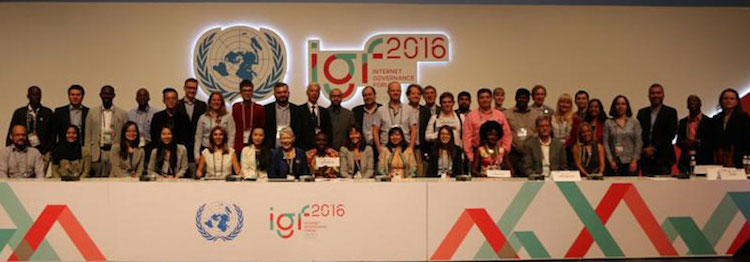
By J Nastranis
NEW YORK (IDN) – The United Nations Internet Governance Forum (IGF) has underlined the urgency to bridge socio-economic inequalities that impact access to or use of information and communication technologies and called for concerted actions to ensure that all people in all countries are able to reap the benefits of the Internet.
According to figures released at the 11th annual IGF in Jalisco, Mexico, the current “digital divide” is adversely affecting some four billion people or two out of three households in developing countries that simply do not have access to Internet.
“Leading up to the twelfth IGF next year, innovations in programming and intersessional activities will continue to be implemented in a bottom-up manner, based on feedback from the multistakeholder community and in line with our new mandate which calls for greater participation from stakeholders from developing countries and improved working modalities,” Juwang Zhu, Director of the Division for Sustainable Development in the UN Department of Economic and Social Affairs (DESA) said in a news release on December 9.
Nearly 3,000 delegates from across the world – comprising international organizations, Governments, academics, and technology leaders – joined thousands more online at the IGF to address the urgent need to intensify global efforts to bridge the digital divide.
“Today, the Internet has an impact on just about every aspect of life. It has undeniably sparked innovation and entrepreneurship, created new forms of public engagement and economic activity,” stated Lenni Montiel, the Assistant Secretary-General for Economic Development in the UN Department of Economic and Social Affairs, said in a news release on December 6.
“This helps people connect, organize and act towards a common purpose,” he added. Montiel further stressed that one of the main goals of the 2030 Agenda for Sustainable Development is to “significantly increase access to information and communications technology and strive to provide universal and affordable access to the Internet in least developed countries by 2020”. The Agenda also established a new universal standard for development that leaves no one behind.
Experts at the global event highlighted that in addition to the physical challenges of getting people connected at affordable rates, many people do not yet fully recognize the value of the Internet. Participants at the Forum also noted that no one solution fits all problems.
For instance, sub-Saharan Africa accounts for the lowest levels of Internet usage in the world with less than three per cent of the population using it in countries including Chad (2.7 per cent), Sierra Leone (2.5 per cent), Niger (2.2 per cent), Somalia (1.8 per cent) and Eritrea (1.1 per cent).
While connectivity between developed and developing countries, within regions and even within countries continues to be an economic and infrastructural challenge, other barriers also exist in digital literacy.
One of this is the “gender gap”. There are 257 million more men online than women and it is particularly concerning that women face a wider variety of online harassment and abuse than men.
“It is very important to bring women online because the part of the population that is not online is missing out a lot. They need to enhance their businesses, they need to enhance their lives, and part of that comes with them being online,” said Evelyn Namara, Founder and CEO of ‘!nnovate Uganda’, an organization that works toward sustainable technological development.
The IGF this year included some 150 sessions discussing a number of issues such as human rights and freedom of expression online, multi-stakeholder cooperation, and cybersecurity.
The Forum also recognized the “critical role” of the Internet in providing access to opportunities to all people. Participants, including from governments, the technical community, private sector and civil society also advocated for more capacity-building, training as well as closer collaboration and partnerships.
The news release added that an emerging consensus has developed among the IGF community that the Internet’s core values of openness, freedom, resilience, safety and decentralisation are fundamental for enabling sustainable growth.
Each year, the UN convenes the IGF meeting, through the UN Department of Economic and Social Affairs, to unify various stakeholders and discuss Internet governance issues, as well as opportunities and challenges in an open, inclusive and transparent forum. This year’s theme – Enabling Inclusive and Sustainable Growth – aimed to explore the ability of the Internet to foster development in sustainable and inclusive ways. [IDN-InDepthNews – 11 December 2016]
Photo: Participants at the 11th annual United Nations Internet Governance Forum in Jalisco, Mexico. Credit: IGF
IDN is flagship agency of the International Press Syndicate.











